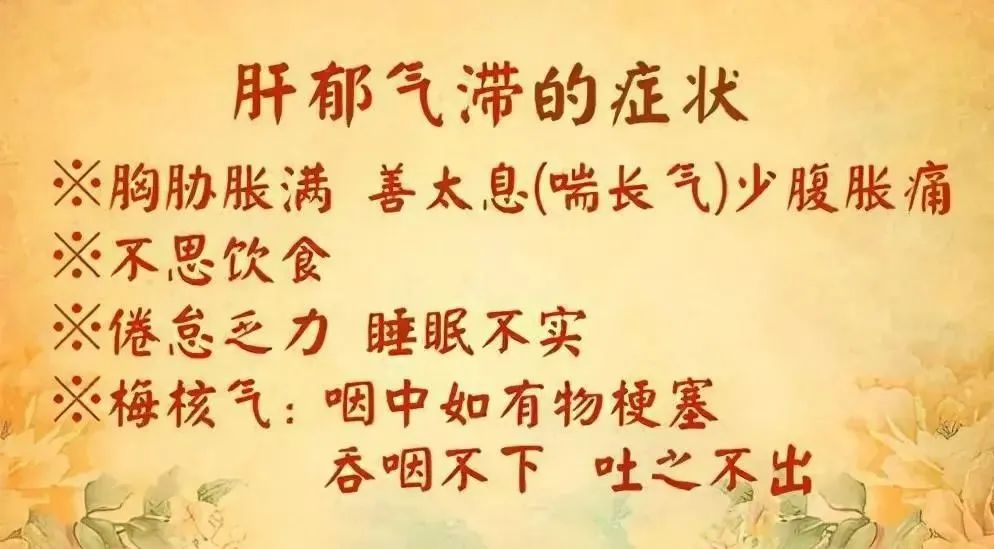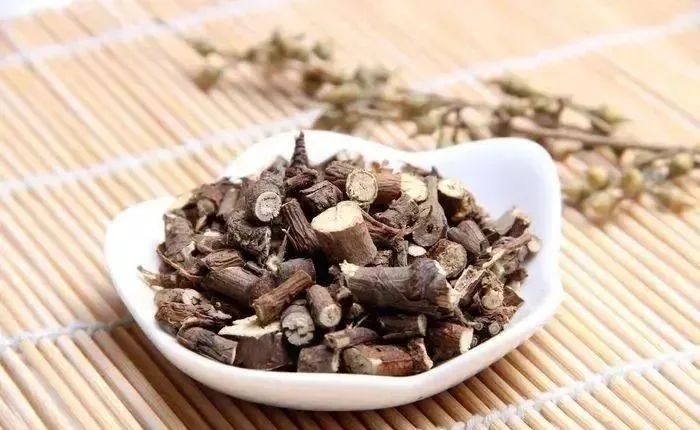Hello everyone, I am a health mentor at Jiushengde Medical Hall.
Recently, I have encountered many patients with liver Qi stagnation: depression, pain in the chest and flanks, frequent sighing, distension and wandering pain in the chest, flanks, or lower abdomen, constipation or loose stools. Female patients may also experience breast lumps, masses under the ribs, breast distension and pain, irregular menstruation, and dysmenorrhea.

Why Does Liver Qi Stagnation Worsen in Spring?
Because the liver belongs to wood, and spring is the season of growth for trees, similarly, liver Qi rises easily, which can lead to excessive liver fire, causing Qi and blood circulation to become chaotic, making people feel anxious and irritable. Patients with symptoms of liver Qi stagnation, such as thyroid nodules, breast nodules, dizziness, and headaches, are particularly affected. However, there is a benefit to this; at this time, as liver Qi rises, it is an opportune moment to regulate and nourish the liver, treating liver Qi stagnation effectively.
What Diseases Can Liver Qi Stagnation Cause?
Formation of nodules and masses: Prolonged liver Qi stagnation affects the metabolism of water and food in the body, leading to phlegm accumulation. This can result in plum pit Qi in the throat, thyroid nodules in the neck, breast nodules in the chest, cysts in the liver, lungs, and kidneys, and uterine fibroids, ovarian cysts, blocked fallopian tubes, and dysmenorrhea in the uterus…
Gastrointestinal diseases: Liver Qi stagnation leads to impaired liver function, affecting the stomach’s metabolic function, which can cause epigastric distension, stomach pain, chest tightness, and belching.
Impact on spleen and stomach function: Liver disease affects the spleen, impairing its transportation function, leading to loss of appetite, abdominal distension, loose stools; abdominal pain with a desire to defecate, relief after defecation.

Renowned Formula for Relieving Liver Qi Stagnation — Tongqi San
Although there are many diseases caused by liver Qi stagnation, as long as they are actively addressed, they usually do not lead to serious consequences. For such diseases, the famous Qing Dynasty physician Wang Qingren created a classic formula, recorded in his medical work “Yilin Gai Cuo”, called Tongqi San.
Tongqi San Formula Explanation
Tongqi San consists of three simple herbs: Chai Hu (Bupleurum), Xiang Fu (Cyperus), and Chuan Xiong (Ligusticum). However, do not underestimate it just because of its simple composition.
The monarch herb is Chai Hu, which regulates Qi and relieves stagnation, dispersing Yang Qi with its ascending nature to open the orifices. The minister herb is Xiang Fu, which is aromatic and disperses, regulating the Qi mechanism to relieve stagnation. The assistant herb is Chuan Xiong, which regulates the Qi in the blood, ascending and dispersing, reaching the head and descending to the blood sea, opening the stagnation throughout the body, ensuring smooth circulation of Qi and blood.
Indeed, it is small but complete, balancing Qi and blood, and harmonizing the upper and lower parts. Therefore, it is highly effective for treating liver Qi stagnation.

Tongqi San Case for Hearing Loss
Mr. Wang, 31 years old, has bilateral unexplained hearing loss and tinnitus for six months, diagnosed by Western medicine as sensorineural hearing loss, with multiple treatments proving ineffective. The patient reports dizziness, insomnia, irritability, and tinnitus, recalling that the symptoms gradually appeared after a quarrel with his spouse six months ago. Upon examination, the patient’s tongue coating is thin white, and the tongue body is red, indicating a diagnosis of liver Qi stagnation.
Prescribed Chai Hu, Chuan Xiong, Xiang Fu, Guo Sui Bu, Niu Xi, Shu Di Huang, Shi Chang Pu, and Ge Gen, with medication for 7 days. The patient reported improvement in dizziness and tinnitus. After 15 days of treatment, the patient reported some recovery of hearing. After continuing the medication for over 2 months, the patient’s hearing fully recovered, and all symptoms disappeared, leading to cessation of medication. Follow-up visits have shown no recurrence.
Tongqi San Case for Plum Pit Qi and Breast Nodules
Ms. Liu, 27 years old, reports having phlegm in her throat that she cannot expel or swallow, frequent chest tightness and breast distension, inability to eat or sleep, irregular menstruation with dysmenorrhea, and a 2.1*1.8cm nodule in the left breast found during examination. Upon examination, the throat showed no abnormalities, the tongue body was pale, and the tongue coating was thin white, indicating a diagnosis of plum pit Qi and breast hyperplasia.
Prescribed Chai Hu, Chuan Xiong, Xiang Fu, Xuan Fu Hua, Dai Zhe Shi, Chen Xiang, He Huan Hua, and Ye Jiao Teng. After 3 days of treatment, the patient reported improvement in chest tightness. After 15 days, the patient reported a reduction in the sensation of a foreign body in the throat and improved sleep. The formula was continued for over 2 months, resulting in a calm state of mind, with the sensation of a foreign body in the throat nearly disappearing, and follow-up ultrasound showed the breast nodule had disappeared. After another half month of consolidation, the medication was stopped, and follow-up visits showed no recurrence.
Tongqi San Case for Blocked Fallopian Tubes
Ms. He, 31 years old, has been unable to conceive for 6 years after marriage, diagnosed with blocked fallopian tubes, and has sought various medical treatments without success. The patient reports irregular menstruation, dysmenorrhea, variable menstrual flow, dark color, breast distension and headache before menstruation, irritability, poor sleep with vivid dreams, and constipation occurring every 3-5 days. Upon examination, her tongue body is red, and the tongue coating is slightly yellow, indicating a diagnosis of liver Qi stagnation.
Prescribed Chai Hu, Xiang Fu, Chuan Xiong, Dang Gui, Yu Jin, Lu Lu Tong, Niu Xi, Ju Ye, Zhi Gan Cao, Zhi Yuan Zhi, Chi Bai Shao, Ye Jiao Teng, Fu Xiao Mai, Pao Jiao, and Da Zao. After 6 days of treatment, the patient reported improvement in irritability. After 15 days, menstruation occurred without breast distension or headache, normal menstrual flow and color, and no dysmenorrhea. However, sleep remained poor, so Shan Yao, Goji Berries, Nu Zhen Zi, and Sha Shen were added, and after another 15 days, the patient reported improved sleep and regular bowel movements. The formula was continued until all symptoms disappeared, and after stopping the medication for six months, the patient reported successful pregnancy.
Tongqi San Case for Headaches
Mr. Kong, 52 years old, reports having headaches for over ten years. The headaches occur intermittently, lasting several hours or days, with significant pain on the right side, often accompanied by dizziness, irritability, palpitations, insomnia with vivid dreams, and tinnitus. Upon examination, his tongue body is red, and the tongue coating is pale, indicating a diagnosis of liver Qi stagnation.
Prescribed Chai Hu, Xiang Fu, Chuan Xiong, Bi Ba, Ge Gen, Chuan Qiang, Bai Zhi, Man Jing Zi, Tu Bie Chong, and Quan Xie. After three days of treatment, the patient reported slight reduction in headache. The formula was continued for over a month, resulting in complete resolution of headache symptoms. To consolidate the effect, the patient continued the formula for another month before stopping, and follow-up visits over the past three years have shown no recurrence.
Alright, that’s all for today. If you find this useful, please click “Like” below to let more people see it.
If you have more health questions, you can scan the QR code below for free answers.


